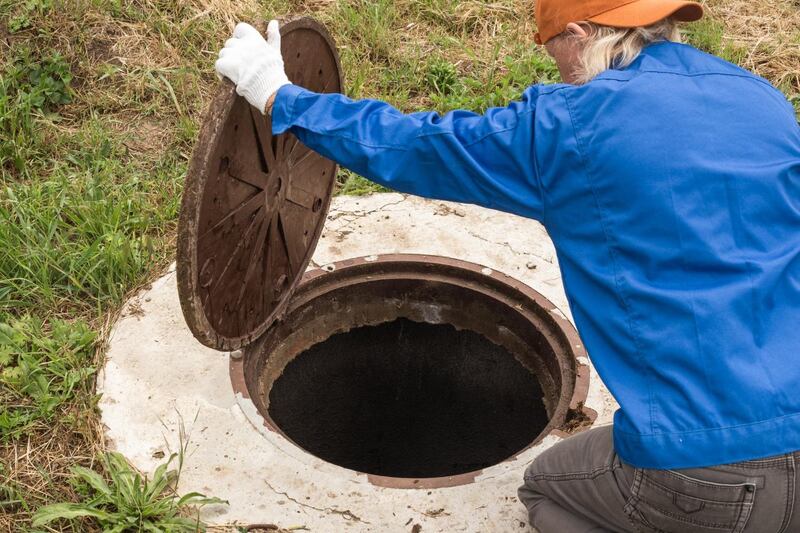Free Septic System Inspection ($99 Value) Free enzyme treatment, Financing Available
Request Service Now!
407-565-7044Free Septic System Inspection ($99 Value) Free enzyme treatment, Financing Available
Request Service Now!
407-565-7044
Understanding how septic systems work and the importance of regular inspections can help you maintain a healthy home environment. This guide will walk you through the septic inspection process, explain why it's necessary, and highlight key points to remember with septic tank cleaning. Septic Blue of Orlando dives into septic systems and how to keep them functioning properly.
A septic system is an underground wastewater treatment structure commonly used in areas without centralized sewer systems. They use a combination of nature and technology to treat wastewater from household plumbing produced by bathrooms, kitchen drains, and laundry.
Regular inspections are crucial for maintaining the efficiency of your septic system. Inspections ensure your septic system functions correctly and your property remains safe and sanitary.
The first step in a septic inspection is an initial assessment. They will check the age of your septic tank. The last septic tank pumping and any signs of damage or wear were performed.
Next, the inspector will locate the septic tank. This might seem straightforward, but sometimes tanks can be buried and hard to find. They use specialized equipment to pinpoint its location if it's not visible.
Once the tank is located, the inspector will open it to check the sludge and scum levels. High sludge and scum levels can indicate that it's time for septic tank pumping to prevent overflow and potential system failure.
Inspectors play a critical role in inspecting septic tank conditions. Their inspector will look for cracks, leaks, and any signs of damage. Should any be detected, they might suggest repairs as a solution so your system continues to function efficiently.
Drain fields are essential components of septic systems and should be regularly inspected. An inspector will check for indicators that your drain field might not be absorption wastewater correctly—including standing water and foul smells—and that it might need repairs or even new tank installation.
Flow testing involves running water through the system to ensure it's draining correctly. If problems are found, the septic company might suggest a thorough septic tank cleaning to clear any obstructions.
It's recommended to schedule a septic inspection every three to five years. However, you should contact a septic company immediately if you notice any signs of trouble, such as slow drains, bad odors, or standing water near your drain field.
Regular septic tank pumping is essential to prevent the buildup of solids that can clog the system. How often you need pumping depends on the size of your tank and the number of people in your household, but generally, it should be done every three to five years.
Be mindful of what you flush down your drains. Avoid flushing non-biodegradable items, grease, or harsh chemicals, as these can damage your septic system and lead to the need for septic tank repair.
Using water efficiently helps your septic system work properly. Fix leaky faucets, install water-saving fixtures, and spread laundry loads to avoid overwhelming the system.
Roots can infiltrate and damage the tank and pipes, potentially leading to costly repairs or even a new septic tank installation.
Clogs can cause slow drainage and backups. If you experience frequent clogs, it might indicate a more serious problem that requires septic tank repair.
Cracks or holes in the septic tank can lead to leaks, contaminating the surrounding soil and groundwater. Regular inspections can catch these issues early, making septic tank repair easier and less expensive.
A failing drain field can cause wastewater to pool on the surface of your yard. This often requires extensive repairs or a new septic tank installation.
Understanding the septic inspection process is crucial for maintaining a healthy and efficient septic system. If you ever notice any trouble, don't hesitate to contact Septic Blue of Orlando for professional services.
When homeowners think about vital systems that keep their houses running, septic systems rarely make the list. Although the HVAC system, plumbing fixtures, and a sturdy roof…
As a homeowner, you may wonder whether it is safe to drive or park over your drain field. This is particularly true if you plan to host…
Do you know what happens to the wastewater once you open the plug in your kitchen sink or flush the toilet? If you live off the main…
Septic systems play a crucial role in businesses and homes without a municipal sewer line. If you rely on an on-site septic system, prioritizing preventive maintenance is…